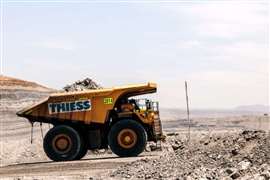New business keeps Kier on course
20 May 2014
Kier has said that its trading performance remained on course after filing a strong first quarter for 2014.
The UK contractor has seen an increase in business for its construction division, after securing £500 million (€614.4 million) in new contracts for the first quarter of 2014. The firm’s order book currently stands at £2.6 billion (€3.2 billion).
New awards include a place on the £176 million (€216.3 million) four-year North Wales Schools & Public Buildings Framework; and, over the last three months, preferred bidder on £100 million (€122.9 million) of work for Procure21+, which is a six-year framework programme being run by the UK Department of Health to procure publicly funded capital schemes for England’s National Health Service.
It has also seen £100 million (€122.9 million) secured on the Scape minor works programmes over the last 12 months. The Scape Frameworks are designed to help public sector clients procure their construction projects efficiently and economically by speeding up and reducing the complexity of the procurement process.
The end of March saw the financial close of the £450 million (€553.1 million) Mersey Gateway construction joint venture in north west England.
Outside the UK, Kier has reported strong interest from the Caribbean, where it has secured a major health project as well as several hotels.
In the Middle East, Kier has been awarded two infrastructure projects totalling £48 million (€59 million) and a £26 million (€32 million) university building project. The contractor has also been awarded the construction management role on a new £33 million (€40.6 million) hotel in Doha, Qatar.






